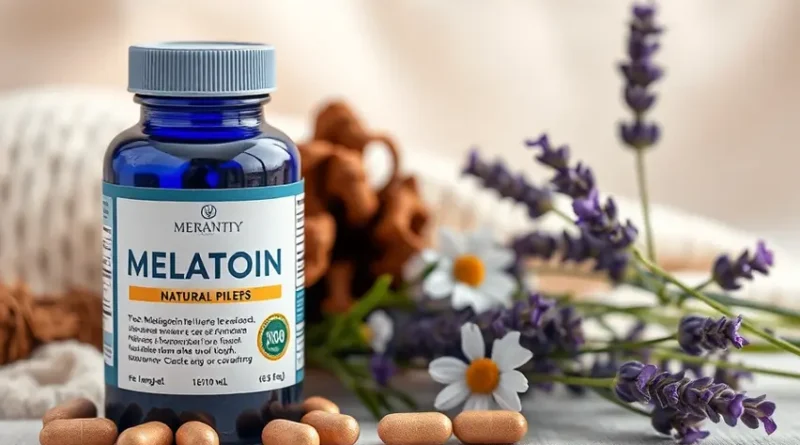Melatonin vs. Natural Sleep Aids: What Works Best?
Sleep is a fundamental aspect of our health and well-being. As our lives become increasingly busy and filled with stress, many individuals find themselves struggling to secure restful sleep. Amidst this quest for better sleep, a myriad of options have emerged, two of the most prominent being melatonin and other natural sleep aids. In this blog post, we’ll delve into the differences between melatonin and various natural sleep aids, exploring their effectiveness to help you make an informed choice for your sleep needs.
Firstly, let’s talk about melatonin. Melatonin is a hormone produced by the pineal gland in response to darkness. Its primary role is to regulate the sleep-wake cycle, influencing our body’s internal clock. With the widespread use of artificial lighting and screens, many individuals experience disruptions to their natural melatonin production, leading to insomnia and other sleep disorders.
Melatonin supplements are often marketed to people struggling with sleep issues, particularly those affected by jet lag or shift work. The supplementation of melatonin can help facilitate sleep by signaling to the body that it’s time to rest. Research suggests that melatonin can effectively reduce the time it takes to fall asleep and improve overall sleep quality for various populations.
However, while melatonin can be beneficial, it’s essential to recognize that it is not a one-size-fits-all solution. The effectiveness of melatonin can vary significantly depending on the individual and their specific sleep issues. For instance, melatonin may be less effective for individuals with chronic insomnia or those who experience fragmented sleep patterns. Moreover, some may experience side effects such as daytime drowsiness or vivid dreams when taking melatonin.
This brings us to the realm of natural sleep aids. Natural sleep remedies include a variety of herbs and supplements that have been used for generations in different cultures around the world. Some of the most popular natural sleep aids include:
- Valerian root: Traditionally used to reduce anxiety and promote relaxation, valerian root has been shown to help shorten the time it takes to fall asleep and improve sleep quality.
- Chamomile: Known for its calming effects, chamomile is often consumed as tea before bed. It contains antioxidants that may promote sleepiness and improve overall sleep quality.
- Lavender: The soothing aroma of lavender has been linked to improved sleep quality. Studies indicate that smelling lavender or using it in aromatherapy can help increase deep sleep and decrease restless sleep.
- L-theanine: Found in green tea, L-theanine is an amino acid that promotes relaxation without drowsiness. It can help reduce anxiety and enhance sleep quality.
- Magnesium: This essential mineral plays a vital role in regulating neurotransmitters that send signals throughout the nervous system and brain. It may help soothe muscles and calm the mind, serving as a natural sleep aid.
Natural sleep aids often work best when combined with lifestyle changes aimed at improving sleep hygiene. Practicing good sleep hygiene is essential for creating an optimal sleep environment. This includes establishing a regular sleep schedule, limiting screen time before bed, maintaining a comfortable sleep environment, and avoiding heavy meals and caffeine close to bedtime.
When it comes to deciding between melatonin and natural sleep aids, there is no definitive answer as to which is better. It often boils down to personal preference, individual sleep patterns, and any underlying health conditions. For instance, if someone suffers from irregular sleep patterns due to work-related travel, melatonin may provide quick relief. On the other hand, individuals who prefer a more holistic approach may gravitate towards natural sleep aids.
It’s crucial to consult with a healthcare professional before starting any new supplements, particularly if you have existing health conditions or are taking other medications. A sleep specialist can provide guidance tailored specifically to your sleep needs, taking into consideration your lifestyle and any potential interactions or side effects of combining different supplements.
Ultimately, both melatonin and natural sleep aids can offer benefits in the quest for better sleep. Understanding how each option works, along with seeking medical advice, can empower you to make choices that will enhance your sleep quality and lead to a healthier, more rested life.

